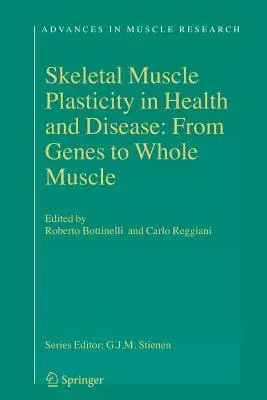Skeletal Muscle Plasticity in Health and Disease: From Genes to Whole MusclePaperback, 30 November 2010

Qty
1
Turbo
Ships in 2 - 3 days
In Stock
Free Delivery
Cash on Delivery
15 Days
Free Returns
Secure Checkout

Part of Series
Advances in Muscle Research
Print Length
368 pages
Language
English
Publisher
Springer
Date Published
30 Nov 2010
ISBN-10
9048173000
ISBN-13
9789048173006
Description
Product Details
Book Format:
Paperback
Country of Origin:
NL
Date Published:
30 November 2010
Dimensions:
23.39 x
15.6 x
1.98 cm
ISBN-10:
9048173000
ISBN-13:
9789048173006
Language:
English
Location:
Dordrecht
Pages:
368
Publisher:
Series:
Weight:
526.17 gm